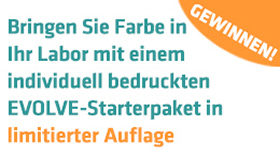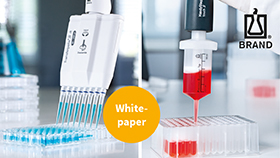Science and Society in Horizon 2020 and Beyond
Career strategies for young European scientists
by Ralf Schreck, Labtimes 01/2015
Page 1 | Page 2 | Page 3
Any assistance needed?
The scientist dealing with open access for the first time in the context of EU programmes may get help via a number of different channels. Support is provided either by the European Commission itself, by FP7- or Horizon 2020-funded projects addressing responsible research and innovation, including open access, or by National Contact Points, which have been established in almost all EU countries and may give advice to do with applications, legal and financial matters and science-society issues. Various stakeholder organisations, such as UNESCO, the Global Research Council, the Research Data Alliance and the League of European Research Universities (LERU) have established expert and working groups on open access topics and published reports and guidelines, which might provide insights beyond the scope of Horizon 2020. Finally, many of the major research funding and research performing organisations have established their own open access policies and may give advice and limited financial support for their applicants and members.
You can find documents relevant to open access in the Horizon 2020 Participant Portal under the heading Reference Documents. To get some background on open access, which might fuel into your research proposal, the regulations establishing Horizon 2020 (article 18), the Rules for Participation (article 43), the Specific Programme (preamble 1.3) and the Work Programme 2014-15 are helpful. For legal and practical aspects consult the Model Grant Agreement (especially article 29.2 and 29.3), the 656-page Annotated Model Grant Agreement and the two Guidelines on Open Access to Scientific Publications and Research Data as well as on Data Management in Horizon 2020. You may also contact directly the European IPR helpdesk, which has also published a sheet of frequently asked questions on open access or the European Commission’s Open Access Team at RTD-OPEN-Access@ec.europa.eu. Members of the European Commission Central Library have created a portal, which presents, amongst other things, a selection of links to search tools and repositories as well as the latest news on open access (www.netvibes.com/open-access).
|
Eduardo Moreno, Institute of Cell Biology, University of Bern, Switzerland: “I am a big supporter of open access journals because research that is paid by taxpayers should be accessible to the public that paid for it, not only to academics. It will also contribute to increase the scientific education of Europeans and, therefore maintain the EU as a knowledge hub.”
|
Even more help for scientists
Researchers participating in Horizon 2020 are free to publish anywhere, as long as they make sure that the publication or data are made publicly available. But many researchers do not know, which open access and copyright options are available for their favourite journals (see, for example, the service portal SHERPA/RoMEO at www.sherpa.ac.uk/romeo), or whether an open access journal applies a quality control system to guarantee its content (white list Directory of Open Access Journals at www.doaj.org), or whether it is of questionable quality (so-called predatory journals, black list at http://scholarlyoa.com/publishers).
Other questions arising include where to deposit publications or data, which format should be used for depositing publications, data and associated metadata, or which licensing model should be applied for the re-use of data. In addition, there are databases with links to free tools and online services that support the researcher, e.g. in writing a data management plan according to EC regulations or providing letter templates that might be instrumental in dealing with publishers. The EU-funded project FOSTER (Facilitate Open Science Training for European Research, www.fosteropenscience.eu) is a two-year project that started in 2014 and aims to produce a Europe-wide training programme that will help researchers and others to incorporate open access approaches into their research work. In addition, the project’s portal has already assembled a huge amount of existing material on open access from various sources that may be re-used and may help the researcher to become familiar with open access. Other EU-projects worth mentioning as a source of support and background on open access are OpenAire and OpenAire+, which have significantly contributed to the implementation of open access in Europe and will be continued by Open AIRE2020 in 2015.
Repositories at your fingertips
There are institutional, disciplinary and multidisciplinary repositories for publications and/or research data. The EC encourages the use of discipline-specific repositories, which often have the advantage of being widely accepted and used by the scientific community of the depositing scientist and to have more features, visibility and higher user-friendliness in comparison to smaller institutional repositories. Disciplinary repositories include, for example, arXiv, which was launched in 1991 at Cornell University and just announced that more than one million articles have been uploaded by physicists, computer scientists and mathematicians as preprint before peer review. Another example in the Life Sciences/Biomedicine sector is Europe PubMed Central, which provides full-text access to more than 2.6 million articles. In case the scientist does not want to use or is not able to find a subject-specific repository, multidisciplinary repositories, such as the “catch-all” repository Zenodo may be used (www.zenodo.org). Zenodo is co-funded by the European Commission and was launched by CERN and OpenAIRE in 2013. You may find additional repositories via registries, such as OpenDOAR (www.opendoar.org), ROAR (http://roar.eprints.org), the REgistry of REsearch Data REpositories (www.re3data.org) or OpenAire.
Outlook
Responsible research and innovation, open access and science with and for society are topics that are heavily promoted and strongly supported in the Horizon 2020 Framework Programme. Whereas some issues have been implemented throughout the whole programme, such as open access to publications, others are still in their infancy and are being checked out in pilots, such as the open data pilot or in research and dissemination projects, aimed at generating and sharing best practice solutions. The scope of the topics covered in this article is very broad. Not all aspects could be covered sufficiently and only a small selection of links to further information has been included.
Open access issues and the future of scientific publishing have been widely addressed recently in primary scientific journals. Latest news includes, for example, the Bill and Melinda Gates Foundation’s announcement of the world’s most abrasive policy on open access, which might prevent researchers funded by the foundation from publishing in certain top journals. Publishers have reacted to the new developments, too, and installed new journals or modified business models. For example, Science Advances, an online-only open access journal will join the family of Science publications in 2015 and will charge about €4,650 per article and a surcharge of €1,270 if articles exceed ten pages. The publisher AAAS has been criticised by the scientific community not only for its price tag but also for its licensing model, one that is not used by some research funders such as the Wellcome Trust. The Nature Publishing Group announced that starting from October 2014, all papers submitted to Nature Communications must be published in open access and that during a one-year pilot, subscribers and media will get access to read-only research papers in PDF format, including those in Nature and 48 additional journals. These papers cannot be printed but may be annotated and shared via a link provided.
Science-Society Links
Page 1 | Page 2 | Page 3
Last Changed: 14.02.2015







